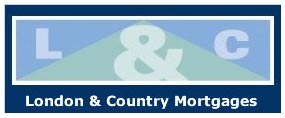2010 has started with yet another interest rate hold by the Bank of England – the tenth consecutive hold decision since Bank Rate was cut in March to an all-time low of 0.5%.
Mortgage lenders Standard Variable Rates (SVRs) have also been very low over the last year, but despite Bank Rate remaining unchanged, a number of lenders have been increasing their SVRs – pushing up mortgage costs for thousands of borrowers. As this trend continues, more and more borrowers should consider switching their mortgage to a new deal.
Although SVRs tend to follow the Bank Rate, lenders can change their own rate at their discretion. Lenders such as C&G and Nationwide have rules in place which guarantee that their SVRs can be no more than 2% above the Bank’s base rate, but other lenders have no such restriction.
While the SVRs of both C&G and Nationwide remain at 2.5%, a number of lenders have recently increased their rates and some are now charging more than twice that rate. Marsden Building Society recently announced an increase in SVR from 5.49% to 5.95% effective this month and Kent Reliance increased theirs by 0.3% to a huge 6.08% from 1st December.
Others have increased by even bigger margins. Accord (part of Yorkshire Building Society), last month raised its SVR by 0.65% and Cambridge Building Society went up by 0.59%.
Most recently, Mansfield Building Society announced that it was increasing its SVR by 0.35% to 5.59% – effective from the 11th January for existing borrowers.
David Hollingworth, Head of Communications for L&C, said, “Following these rises, the gap between the lowest and highest SVRs is now more than 3.5%, so depending on which lender you’re with, paying the Standard Variable Rate could prove costly.
“If you’ve been paying your lender’s SVR, don’t just assume that it’s the best rate for you at the moment – you could be paying more than you have to and you could see you monthly mortgage payments increase out of the blue.â€
A simple way to check if you’re paying too much for your mortgage is to use L&C’s 1 Minute Mortgage Check answer 3 simple questions and they’ll tell you if you could save money on your mortgage.
Via EPR Network
More Financial press releases

